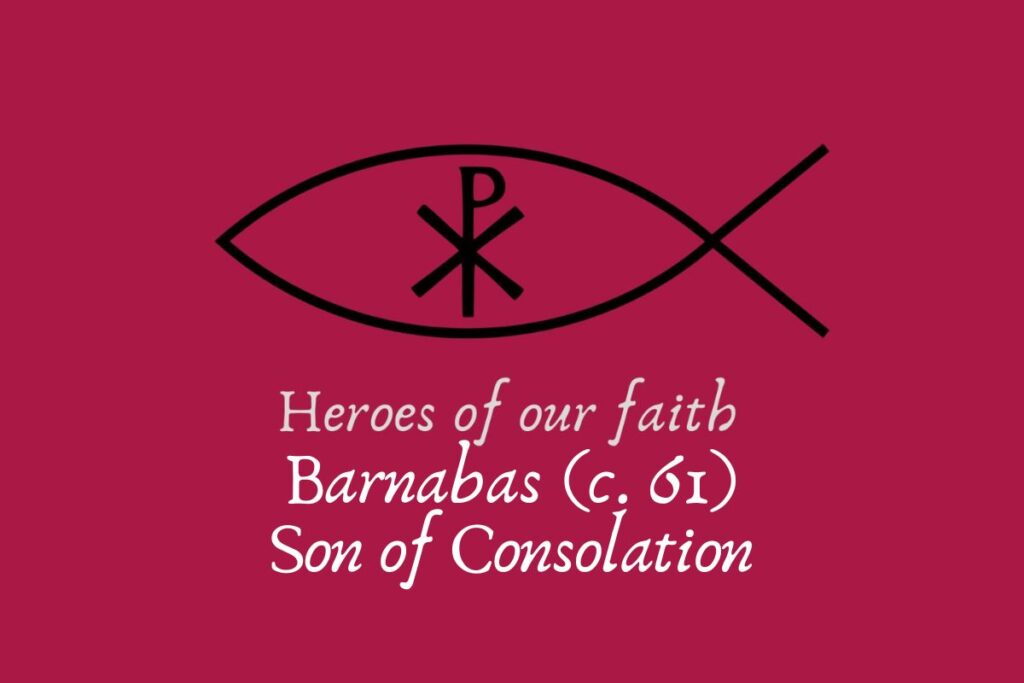
Barnabas, a Jewish Cypriot, was one of the earliest Christian disciples in Jerusalem. His name means “son of consolation”, and he was known for his encouraging nature, always willing to help and share with those around him. Indeed, in Acts 4:36-37 we are told that he “sold a field he owned and brought the money and put it at the apostles’ feet”.
Much of what we know about him is taken from the book of Acts, in which we read that he was well-regarded in the Jerusalem church, which eventually entrusted him with the task of leading the church in Antioch. Luke, the author of Acts, described Barnabas’ fruitful ministry in Antioch thus:
When he arrived and saw what the grace of God had done, he was glad and encouraged them all to remain true to the Lord with all their hearts. He was a good man, full of the Holy Spirit and faith, and a great number of people were brought to the Lord.
(Acts 11:23-24)
Paul joined him in Antioch, and they embarked upon a missionary journey to Cyprus and Asia Minor, where they “proclaimed the word of God in the Jewish synagogues” (Acts 13:5b). On one occasion, in Pisidian Antioch, “almost the whole city gathered to hear the word of the Lord” (Acts 13:44b). The Jews were jealous and opposed the pair, who then turned their attention to the Gentiles, and “the word of the Lord spread through the whole region” (Acts 13:49). The persecution from the Jews intensified as the Gospel message rang out, attracting large numbers of followers. They then returned to Antioch before setting off on separate missionary journeys. Barnabas went back to Cyprus, this time with his cousin John Mark.
Barnabas is regarded as the founder of the church in Cyprus, which is where he was later martyred at Salamis, in around the year 61. According to tradition, he was dragged by Jews out of the synagogue, where he was preaching the Gospel, and stoned to death.
The son of consolation, moved by thy law of love,
forsaking earthly treasures, sought riches from above.
As earth now teems with increase, let gifts of grace descend,
that thy true consolations may through the world extend.







